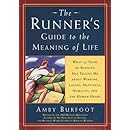
[EXCERPT] “Medicine, electronic communications, space travel, genetic manipulation…these are the miracles about which we now tell our children. These are the miracles we herald as proof that science will bring us the answers. The ancient stories of immaculate conceptions, burning bushes, and parting seas are no longer relevant. God has become obsolete. Science has won the battle. We concede.But science’s victory has cost every one of us. And it has cost us deeply.
Science may have alleviated the miseries of disease and drudgery and provided an array of gadgetry for our entertainment and convenience, but it has left us in a world without wonder. Our sunsets have been reduced to wavelengths and frequencies. The complexities of the universe have been shredded into mathematical equations. Even our self-worth as human beings has been destroyed. Science proclaims that Planet Earth and its inhabitants are a meaningless speck in the grand scheme. A cosmic accident. Even the technology that promises to unite us, divides us.
Each of us is now electronically connected to the globe, and yet we feel utterly alone. We are bombarded with violence, division, fracture, and betrayal. Skepticism has become a virtue. Cynicism and demand for proof has become enlightened thought. Is it any wonder that humans now feel more depressed and defeated than they have at any point in human history? Does science hold anything sacred? Science looks for answers by probing our unborn fetuses. Science even presumes to rearrange our own DNA. It shatters God’s world into smaller and smaller pieces in quest of meaning…and all it finds is more questions.
The ancient war between science and religion is over. You have won. But you have not won fairly. You have not won providing answers. You have won by so radically reorienting our society that the truths we once saw as signposts now seen inapplicable. Religion cannot keep up. Scientific growth is exponential. It feeds on itself like a virus. Every new breakthrough opens doors for new breakthroughs. Mankind took thousands of years to progress from the wheel to the car. Yet only decades from the car into space. Now we measure scientific progress in weeks. We are spinning out of control. The rift between us grows deeper and deeper, and as religion if left behind, people find themselves in a spiritual void. We cry out for meaning. And believe me, we do cry out. We see UFOs, engage in channeling, spirit contact, out-of-body experiences, mindquests-all these eccentric ideas have a scientific veneer, but they are unashamedly irrational. They are the desperate cry of the modern soul, lonely and tormented, crippled by its own enlightenment and its inability to accept meaning in anything removed from technology.
Science, you say, will save us. Science, I say, has destroyed us. Since the days of Galileo, the church has tried to slow the relentless march of science, sometimes with misguided means, but always with benevolent intention. Even so, the temptations are too great for man to resist. I warn you, look around yourselves. The promises of science have not been kept. Promises of efficiency and simplicity have bred nothing but pollution and chaos. We are a fractured and frantic species…moving down a path of destruction.
Who is this God science? Who is the God who offers his people power but no moral framework to tell you how to use that power? What kind of God gives a child fire but does not warn the child of its dangers? The language of science comes with no signposts about good and bad. Science textbooks tell us how to create a nuclear reaction and yet they contain no chapter asking us if it is a good or a bad idea.
To science, I say this. The church is tired. We are exhausted from trying to be your signposts. Our resources are drying up from our campaign to be the voice of balance as you plow blindly on in your quest for smaller chips and larger profits. We ask not why you will not govern yourselves, but how can you? Your world moves so fast that if you stop even for an instant to consider the implications of your actions, someone more efficient will whip past you in a blur. So you move on. You proliferate weapons of mass destruction, but it is the Pope who travels the world beseeching leaders to use restraint. You clone living creatures, but it is the church reminding us to consider moral implications of our actions. You encourage people to interact on phones, video screens, and computers, but it is the church who opens its doors and reminds us to commune in person as we were meant to do. You even murder unborn babies in the name of research that will save lives. Again, it is the church who points out the fallacy of this reasoning.
And all the while, you proclaim the church is ignorant. But who is more ignorant? The man who cannot define lighting, or the man who does not respect its awesome power? This church is reaching out to you. Reaching out to everyone. And yet the more we reach, the more you push us away. Show me proof there is a God, you say. I say use your telescopes to look to the heavens, and tell me how there could not be a God!
You ask what does God look like. I say, where did that question come from? The answers are one and the same. Do you not see God in your science? How can you miss Him! You proclaim that even the slightest change in the force of gravity or the weight of an atom would have rendered our universe a lifeless mist rather than our magnificent sea of heavenly bodies, and yet you fail to see God’s hand in this? Is it really so much easier to believe that we simply chose the right card from a deck of billions? Have we become so spiritually bankrupt that we would rather believe in mathematical impossibility than in a power greater than us?
Whether or not you believe in God, you must believe this. When we as a species abandon our trust in the power greater than us, we abandon our sense of accountability. Faith…all faiths…are admonitions that there is something we cannot understand, something to which we are accountable…With faith we are accountable to each other, to ourselves, and to a higher truth.
Religion is flawed, but only because man is flawed. If the outside world can see this church as I do…looking beyond the ritual of these walls…they would see a modern miracle…a brotherhood of imperfect, simple souls wanting only to be a voice of compassion in a world spinning out of control.
Are we obsolete? Are these men dinosaurs? Am I? Does the world really need a voice for the poor, the weak, the oppressed, the unborn child? Do we really need souls like these who, though imperfect, spend their lives imploring each of us to read signposts of morality and not lose our way
 [EXCERPT]
[EXCERPT]
















